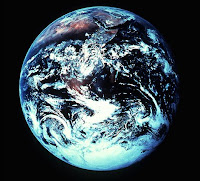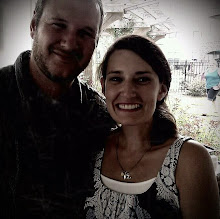 Many of these blog postings will come out of real life discussions that take place in everyday situations. This is one such discussion. Some of our students were talking about the very common debate over young earth or old earth. While either of these positions can be biblical positions, we still had a great time discussing the issues. Here is an explanation of some of the theories. None of these listed views take the theory of evolution into account, even theistic evolution, because it is a better discussion for another blog post.
Many of these blog postings will come out of real life discussions that take place in everyday situations. This is one such discussion. Some of our students were talking about the very common debate over young earth or old earth. While either of these positions can be biblical positions, we still had a great time discussing the issues. Here is an explanation of some of the theories. None of these listed views take the theory of evolution into account, even theistic evolution, because it is a better discussion for another blog post.
Many who are serious about the truth of Scripture tend to take a Young Earth stance on the discussion. Basically, they believe that the earth is somewhere between 6,000 and 10,000 years old. While that is old, on the large scale of things it does not count as being really old. Young Earth believers would typically hold to the idea that the days of creation were literal 24 hour days. This view really comes about by adding up the genealogies found in Genesis and coming up with a time period between 6,000 and 10,000 years old. Young Earth Creationism, in most cases, does not take science and carbon dating into question when formulating their ideas. Instead, it tends to downplay the role of science or believe that it is somehow faulty in its calculations. Some Young Earth believers do, however, take this into account and use the theory that God typically created things with age. For instance, man was not created as a fertilized egg or an infant, but rather full grown. When Jesus turned water into wine, he created something that was of age, and not just freshly squeezed grape juice. Therefore, the earth could have been created with age as well, which could fit with much of the scientific argument. We must give the Young Earth followers credit for remaining faithful to the Bible.
Old Earth (or Really Old Earth) believes that the earth is much older, around 4.6 billion years old. This is really a kind of catch all term for several different systems of belief on creation. One such belief is Day-Age Creationism, which would state that the days of creation were not literal 24 hour days, but rather longer ages of time. This would help to explain how the earth is indeed very old. Another very common belief is the Gap Theory, which believes that there is a literal gap between verses one and two of Genesis chapter one. The earth was in existence for a long period of time, and fell into decay. Then, at some point, God reshaped the world for new life during the six days of creation. The Gap Theory can still see these six days as literal 24 hour days, but does raise some questions as to this world that fell into decay.
My belief is a modified view of the Gap Theory, called Historical Creationism, which I believe answers many or all of the questions of Christian theology and science on the matter. It sees the Bible as providing a historical account of creation, but realizing that Genesis was not written with scientific details in mind. It is not a science textbook, but rather a historical and theological account of the creation of the world. This view originates with John Sailhamer in his book Genesis Unbound. He states that there is indeed a sort of gap between verses one and two of Genesis chapter one. Verse one simply states "In the beginning, God created the heavens and the earth." The word for beginning in the Hebrew does not mean a simple moment in time, but rather an indefinite period of time. We, then, do not know how long it took God to create the heavens and the earth. This time period could account for much of this lost time that Christians have difficulty explaining. What is important to notice here, is that this world was created as formless and void (as most translations today put it). This is likely not the best translation of the Hebrew. Rather, seeing it as 'an uninhabitable wilderness' can be closer to the idea put forth in many places throughout the Old Testament. We must realize at this point that the six days have not begun, but that in effect, the heavens and the earth have already been created. The six days then speak not of the creation of the world, but the preparation of the world for inhabitation by all life.
While there is much detail that goes into the explanation of this view, and all of the other remaining views, these are merely introductory ideas to some basic views of the theories. We can spend more time in other blog posts discussing other aspects of creation. What we do know is that 'God created the heavens and the earth', and that theories that move beyond the biblical text are simply theories. While they can explain much, we must trust the text and the Creator who creates, gives life, and sustains life, all in an effort to show His love and to bring Himself glory.












0 comments:
Post a Comment